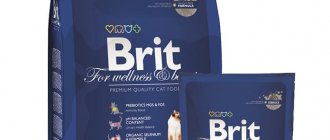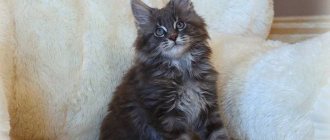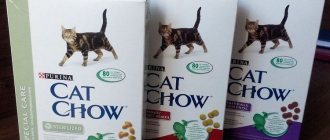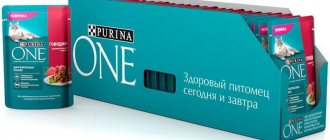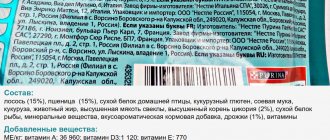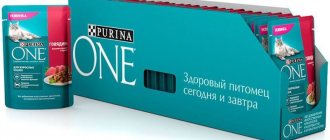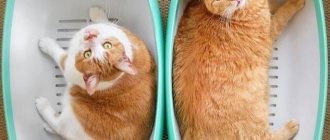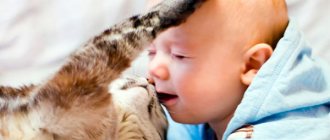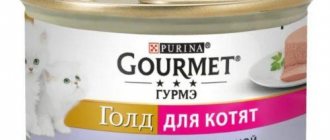"Nestlé Purina PetCare"
| Nestlé Purina PetCare headquarters | |
| Type | Branch |
| Industry | Feed |
| Predecessor | Ralston Purina Canned Food Petker Company |
| Founded | December 12, 2001; 18 years ago (2001-12-12) St. Louis, Missouri, USA |
| Headquarters | Chuto St. 800, St. Louis, Missouri , USA |
| Serviced area | Worldwide |
| Key people |
|
| Products |
|
| Brands |
|
| Company | $11.2 billion (2013) |
| The number of employees | 17,500 (2012) |
| Parent | Nestlé S.A. |
| Website | Purina.com |
Nestle Purina PetCare
(/pot JʊˈРiːНə/) is an American subsidiary. It produces and sells food, treats and cat litter. Some pet foods include Purina Plan Pro, Purina Dog Chow, canned food, Beneful and Purina One. The company was formed in 2001 by combining Nestlé with Ralston Purina PetCare, which acquired it for $10.3 billion. As of 2012, it is the second largest pet food company in the world and the largest in the United States.
Corporate stories
Origin
In 1894, William Danforth, partnering with George Robinson and William Andrews, entered into the business of feeding farm animals through the Robinson-Danforth Company Commission. The name was changed to Ralston Purina in 1902.
Nestlé Purina PetCare was formed in December 2001 when Nestlé acquired Ralston Purina for $10.3 billion and merged it with the Nestlé pet food business, neither the PetCare Company. Rolston sells Chow Chow, Cat Chow and Pro Plan food brands, while Nestlé produces canned food and absolutely Alpo food.
The merger was opposed by consumer advocates such as the Consumer Federation of America due to antitrust concerns. The two companies combined will become the largest PET food brand in the stock market with a 45 percent share of the cat food market. The Federal Trade Commission approved the merger deal after Meow Mix and Alley Cat brands of Ralston were sold to J. W. Childs Partners, creating a separate Meow Mix company. The St. Ralston Louis, Missouri location was chosen as the headquarters of the New North America Company.
Early history
Nestlé Purina PetCare continued the integration of the two companies in 2002. He cut dry dog food production at facilities inherited from the Petker Canning Company in Jefferson, Wis., St. Joseph, Mo., and Arden Hills, Minn., then moved those operations to manufacturing facilities acquired from Ralston. Expanded production facilities were planned for Dunkirk, then the New York and St. Joseph locations were expanded for wet food production. In Asia, she moved from a "dealer network" to running her own mailing list. In 2004, Nestlé Purina merged its North American and Latin American operations into the Nestlé Purina PetCare Americas division.
In 2003, Nestlé Purina PetCare formed a partnership with the Canine Health Foundation to promote veterinary research. The following year, the company donated 80 tons of food to pets affected by Hurricane Charlie in Florida and donated $100,000 to local animal shelters. Nestlé Purina PetCare's revenues grew by about 11 percent in 2001, up one-third by 2005. By 2006, it was the largest market-owner share in the pet nutrition industry with 32 percent of the market.
Recent history
Nestlé Purina solar farm at its Arizona plant
By 2009, Purina was one of the fastest-growing divisions, due to consumers' increased willingness to spend more money on pet food. In 2008, he formed a separate company called PurinaCare, headquartered in San Antonio, Texas, where he sells PET insurance. PetCare was later acquired by pethealth Inc. in 2013. By 2009, Purina also introduced Sora Pet products and built new production facilities in Russia and Thailand. Its Colorado plant built the largest private solar panel system in the state. In September 2010, the company reached an agreement to acquire Waggin' Train, a treat manufacturer with $200 million in annual revenues.
In 2013, Nestlé Purina PetCare acquired a website for homeless animals called Day. The following year, he acquired Zuk, a manufacturer of cat and dog food. From 2010 to 2012, it expanded its manufacturing operations in Australia, Hungary and Germany. It is also sold by the largest pharmaceutical solar panel company at its facilities in Atlanta, Georgia. In April 2014, Nestlé Purina PetCare opened the first cat cafe in the United States.
In February 2021, the company announced plans to spend $115 million to expand its plant in Bloomfield, Missouri, to support demand for neat cats. In November, the company invested $320 million in an old textile mill in Hartwell, Georgia.
In April 2021, Nestlé Purina PetCare acquired Lily's Kitchen, a British brand of natural food.
Purina has partnerships with several nonprofit organizations, including the Urban Resource Institute, which works with animal shelters for victims of domestic violence in New York City.
Legal issues
In May 2014, Nestlé Purina PetCare began a legal dispute with Blue Buffalo regarding its advertising policies. Blue Buffalo advertises that its products do not contain meat or callus by-products, while Purina said independent lab tests have confirmed that they do. Buffalo Blue made similar statements against Purina in a countersuit less than a week later. He also alleged Purina was engaged in what was characterized as a "smear campaign." The National Advertising Review Board and Promotional Self-Regulatory Board found that Buffalo Blue's advertising is misleading and claims that competitors' concealment of information about their ingredients is unreasonable. The blue buffalo said that he did not agree, but would obey the ruling one.
In 2015, after a dog died and another got sick, a class-action lawsuit was filed against Purina, alleging that the company's Beneful brand of dog food contained propylene glycol and mycotoxins produced by mold in grains—grains that are the main ingredient in Beneful. The lawsuit failed when a judge ruled that the plaintiff's lawyers had not proven that the food causing the dog illnesses and dog deaths was caused by the heart tumor.
In April 2021, another lawsuit, regarding Purina's line of dog foods only and allegations that its advertising deceived consumers into thinking it was full of bacon, was dismissed.
Reminds me
In 2005, Nestlé Purina PetCare voluntarily recalled all of its dry foods made from plants in La Encrucijada, Venezuela after an internal investigation verified contaminants that caused animal disease. According to Fortune magazine
, in 2007, the pet food market was "thrown into chaos" by the widespread discovery of contaminated products. During this period, Nestlé Purina voluntarily recalled some of its Alpo fillet sauced product in the US that contained wheat gluten from China contaminated with melamine.
In August 2013, Purina recalled some of its Purina dog food products, due to one bag that was found to contain salmonella. In 2012, a consumer sued Nestlé Purina PetCare when his pet died after eating a train of Waggin treats. The Food and Drug Administration has received more than 900 reports of distressing pet owners who are allegedly treating illness or death in their pets due to chicken products from China. The FDA issued a warning regarding these products, but laboratory tests reconfirmed the absence of contamination. Later that year, another consumer launched a petition on Change.org asking retailers to voluntarily stop carrying the product. The petition attracted 60,000 signatures. The following year, Waggin Railroad and Canyon Creek dogs were voluntarily withdrawn temporarily after the New York Department of Agriculture and Markets detected trace amounts of antibiotic sludge, which is approved in Europe and China but not approved in the United States. In early 2014, a settlement of $6.5 million was reached pending court approval. According to the Washington Post newspaper
The company later reintroduced the brands after "modernizing its manufacturing process and reviewing its supply chain."
Purina Cat Chow
This food is produced in Russia and Hungary. This type of food belongs to the economy class. The food is intended:
- For kittens;
- For adult cats;
- For animals that need constant care;
The food from the Purina Cat Chow line is a balanced food that contains:
- High-quality protein;
- Vitamins E and B;
- Whole grains, vegetables, yeast;
- Complex Naturium.
The food contains a high content of meat, but the main one is cereals. The food does not contain dyes, flavors or preservatives.
It's up to you to decide which food is right for your cat. It is worth starting from the needs of the cat, whether it has contraindications for nutrition or not. Also, your cat may not like the food you choose, so this will be decided by trial and error.
Goods and services
According to MarketLine's SWOT analysis, Nestlé Purina PetCare pet foods that contribute significantly to revenue include Purina, Purina Dog Chow, Canned Food, Purina Beneful and Purina One. Some brands such as Alpo are aimed at budget shoppers, while others such as Purina One and Beneful cost more and are for the health or ingredient conscious consumer. Purina One has been his fastest growing brand.
The company introduced cat food snacks, a tasty snack treat, in 2009. The Purina Line Pro plan for senior dogs was introduced in 2010. It contains medium chain triglycerides (MCTs) for brain function and whole grains for digestion. A grain-free product, Purina One Beyond, was introduced in 2011. Purina Pro Sport Plan, which contains more fat and protein and is designed for athletic dogs, was introduced in 2013. In 2014, Purina introduced a product for the growing Brazilian market called Ravena, which uses locally available ingredients such as acerola extract and jaboticaba fruit. Purina-branded accessories such as training pads, beds, leashes and cleaners began being sold in 2011 under the Purina PetGear name through brand licensing agreements with other manufacturers.
Leading Purina brands and product lines include:
|
|
Purina One
The products in this line fall somewhere between economy and premium class. Designed for both adult cats and small kittens. Contains high protein content. The cat line series is suitable for feeding:
- Kittens;
- Adult pets;
- Old individuals (from 10 years);
- For sterilized cats;
- For pets suffering from digestive system disorders.
A special feature of this line of cat food is that they use the Actilea formula, which activates the animal’s natural immune processes. This formula works so actively due to what it contains:
- Prebiotics that support intestinal microflora;
- Yeast, which is a natural source of vitamins and minerals;
- Antioxidants.
Marketing and advertising
In the mid-1970s, the Purina Cat Chow brand launched a "Chow Chow" advertising campaign, variations of which would run for the next 20 years. Television commercials feature cats seemingly dancing the cha-cha, using a post-processing and editing trick that involves playing the film quickly back and forth, giving the humorous illusion of the cats dancing as they walked or ran to the beat of the music. The earliest such spots featured the character of actress Patsy Garrett, who would appear in a number of other Chau spot cats as an official spokesperson over the years.
In 2006, Nestlé Purina PetCare introduced the authors of an email application, Doggie-Mail, that could send messages over the Internet through a talking dog. In 2009, he sponsored the site pawnation.com developed by AOL, which hosted crowdsourced PET videos, tips, Q&As and other materials about PET property. Purina is also the author of the tips site for Martha Stewart's favorite Living Omnimedia. The company presented an advertising campaign for the Alpo brand with the slogan “real dogs eat meat.” In the ad, pampered pets were "rescued" and fed to Alpo, implying that pets are needed to maintain a connection to their primal nature by eating meat. In 2009, it released a free iPhone app called "petcentric places," which allows users to map local pet-reviews of places like dog walking spots or pet-friendly hotels. In 2010, Purina released a branded Facebook game called Purina Pet Resort, where players control a virtual pet resort.
In 2011, Nestlé Purina PetCare became the official sponsor of the Westminster Show, organized by the American Kennel Club. The company submitted a contest for pet owners to win a part-time job earning $50,000 a year to travel with their cat, interview other pet owners, and write for Purina's website. Nestlé Purina also produced television advertisements intended for Austria that sound effects could only be heard by animals. This was the first set of advertisements to target pets directly rather than their owners.
In 2012, Purina and another Nestlé business, Jenny Craig, jointly created "Project: Pat's Lose Weight," an online program designed to help pets and pet owners lose weight together. Grumpy Cat became the "spokescat" for the brand, which appeared at the end 2013. In 2013, Purina posted ads in Westminster showing a publicly available video featuring Purina in response to the question "how big is your dog?"
What is special about Purina?
To understand whether the diet of a given company deserves attention, it is worth studying its composition. It also makes sense to consider what advantages and disadvantages are inherent in the product. Consumer reviews will also help form the overall impression.
Compound
According to the manufacturer, each diet contains exclusively natural ingredients: meat, cereals, vitamins and minerals.
Purina dog food features an optimal ratio of fats, proteins, trace elements and vitamins.
Due to this, it helps strengthen the pet’s immune system, maintain muscle mass at the proper level, and prolong life.
The approximate composition of Purine is presented below:
- Dry poultry protein, which is obtained from processed chicken waste.
- Wheat.
- Chicken, salmon or lamb meat. Its content is about 15%.
- Corn.
- Animal fat.
- Cornmeal and gluten.
- Fish fat.
- Mineral and vitamin supplements.
- Beet.
Corn and wheat promote faster saturation. They also allow you to slightly reduce the cost of goods. Beets promote normal digestion. Gluten and flour are used to increase energy value. Fish oil is an essential source of Omega. But it is worth noting that the composition also contains a flavoring additive.
Advantages and disadvantages
Many users are satisfied with Purina kits. Although there are also negative statements. Therefore, to understand whether Purina dry dog food is worth buying, you should consider its characteristics. It is important to determine which positive and which negative aspects are inherent in such a diet.
Positive reviews about dog food indicate that the brand’s products have the following advantages:
- Big variety. Makes it easy to find a set for any dog. There is a classification by breed, age, and health status.
- There are therapeutic and dietary solutions.
- Formats and tastes vary.
- It is possible to choose a product by price. In principle, most options are affordable.
- The company has been on the market for a long time. Therefore, consumers trust this brand.
- The packaging is quite convenient. Absolutely all users note this.
- In addition to dry food, there are canned food and spiders.
- Availability. Food is sold in almost all pet stores. You can also order via the Internet.
But there are also negative reviews about dry dog food, which indicate that the product still needs work. The disadvantages consumers include are the following:
- Often the wide selection is confusing. Novice dog breeders with an irresponsible approach can make the wrong choice. Therefore, before buying, you need to carefully study the range.
- Not all dogs are delighted with this food. Perhaps this is due to antipathy towards a certain product. Therefore, it makes sense to try food of a different taste.
- Some options have an unappetizing smell.
- The food still contains artificial ingredients. For example, flavor enhancers, flavorings. Also underneath the protein and chicken are by-products.
- The composition of the entire line is almost identical.
Reviews from customers and doctors
In principle, reviews of Purina dog food are not bad. Many people prefer this brand. But the manufacturer positions its products as super-premium. Consumers consider it more of a premium category. And all because of the low content of natural meat. We recommend that you read the article about premium dog food.
Considering reviews from veterinarians about Purina dog food, it should be noted that they are all mostly positive. Experts say well that there are diets with therapeutic effects. They also note the balanced composition. The correct ratio of proteins and fats allows you to maintain the animal’s muscle mass and its immunity is normal. But, despite good reviews, doctors still do not recommend using Purina food as the main diet. And the reason for this lies in the composition.
Operations
Nestlé Purina PetCare operates as a subsidiary. Headquartered in St. Louis, Missouri, we have operations in North America, Asia, Africa, Europe, Latin America and Oceania. There are sixteen houses on 50 acres at its headquarters, including a four-story research and development center, built in 2010, and a teaching and training center, built in 2011. In 2010, Purina built the Purina $10 million event center for dog shows and competitions. Nestlé Purina PetCare sponsors various charitable events, such as Animal Grooming Pride Day, an annual event where employees do volunteer work. Employees are permitted to bring their pets to work. The company has on-site gyms, physical education instructors, medical services, and employee turnover of about 5 percent.
In 2005, Purina PetCare was the second most profitable division behind Pharmaceuticals. It was the largest feed manufacturer by market share in the United States and the second largest in Europe. As of 2012, worldwide, Purina has a 23.1% share of the pet food market, while its largest competitor, Mars, has a 23.4 percent share. According to research and market reports, competition between Nestlé and Mars was "fierce."
In 2010, Nestlé Purina PetCare received the Malcolm Baldrige National Quality Award based on organizational and operational performance. Its production is constantly reducing the amount of materials used in packaging, increasing recycling of production waste and reducing water consumption, in addition to installing solar panels to produce electricity for its offices and premises. In 2011, Nestlé Purina PetCare was recognized as one of the 11 most sustainable companies in the annual Two Tomorrows ranking. As of 2014, it has 19 production plants.
